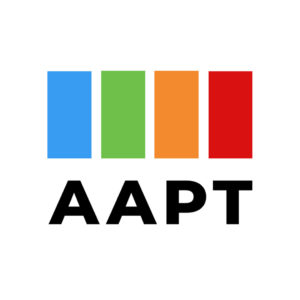CFP: AAPT Studies v.8

Call for Papers
Volume 8
Welcoming Newcomers: Teaching for Novice Philosophy Students
Edited by
Jake Wright
American Association of Philosophy Teachers Studies in Pedagogy is a peer-reviewed annual journal dedicated to publishing thematically focused volumes of original works on teaching and learning in philosophy.
Most undergraduate students in philosophy courses have never taken a philosophy class before. Courses designed for such novice students will likely be their only exposure to academic philosophy and define for them what philosophy is and how it is done. Simultaneously, for students who pursue a philosophy degree, such courses are often their first point of contact. Therefore, how we teach such courses—and how we support novice philosophers—may have an outsized impact on how our discipline is experienced, whether or not students pursue further philosophical study.
Potential topics include but are definitely not limited to the following:
- What assumptions about philosophy do students bring to introductory courses? How do these assumptions impact learning? How should they impact teaching?
- What are the appropriate learning objectives for introductory courses?
- What comparative advantages does a particular approach (e.g., historical, topics, methods, etc.) have for introductory philosophy students? Why should teachers choose one focus over another?
- To what extent should course material focus on topics the instructor feels competent in? What level of topical expertise is appropriate for instructors to include material in class?
- How should a course’s introductory nature influence course content and media? Do philosophy teachers have any obligations to employ or avoid the canon? Must we teach students how to read primary sources? When is a course with no readings best?
- How does an introductory course where Diversity, Equity, and Inclusion is a forethought look?
- How do the signature pedagogies of philosophy influence introductory courses?
- Why are certain assignments or experiences better than others in introductory courses?
- In what ways does class size influence what should be done in an introductory course?
- How much individual variance among multi-section introductory courses be allowed or encouraged? How do we balance academic freedom with other concerns?
- How should the fact that introductory courses are typically the first experience graduate students have teaching philosophy impact influence teacher training in philosophy?
- How should we balance the need to attract majors/minors with the reality that most students will not take additional philosophy courses?
We expect final articles to be between 4000-9000 words, but are open to discussions regarding longer or shorter works. Submissions should be prepared for anonymous review. Final papers need to follow Chicago Manual of Style 17th ed. guidelines, and we recommend that initial submissions do as well.
Paper Submission Deadline: Monday, September 12, 2022
- To submit an essay, go to https://aaptstudies.org/submissions
- Direct inquiries about this call or volume 8 to jwwright@r.umn.edu
- Direct inquiries about AAPT Studies in Pedagogy to editor@aaptstudies.org
Printer-friendly version of AAPT-Studies-CFP8
Please distribute widely.
